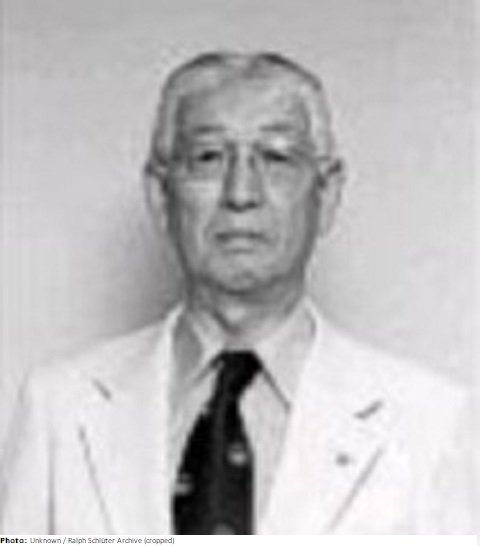
| Roles | Competed in Olympic Games • Coach |
|---|---|
| Sex | Male |
| Full name | Akira•Fujita |
| Used name | Akira•Fujita |
| Original name | 藤田•明 |
| Born | 1 January 1908 in Hiroshima, Hiroshima (JPN) |
| Died | 29 May 2001 (aged 93 years 4 months 28 days) in Minato, Tokyo (JPN) |
| Affiliations | Waseda University, Tokyo (JPN) |
| NOC |  Japan Japan |
Akira Fujita was inspired by his teacher at his elementary school to start swimming. At the Waseda University swim club, where he served as the team captain, many talented swimmers gathered in the first Golden Age of Japanese swimming. Japan’s water polo victory in the 1930 Far Eastern Games tournament led to the formation of a water polo team for the 1932 Olympics. Fujita captained and coached the team, which placed fourth of five teams. He also led Waseda’s team to three consecutive national titles (1931-33).
After graduating from Waseda’s Faculty of Commerce, Fujita joined Yokohama Rubber. He remained active as a sports manager for the Dainippon Water Sports Federation, responsible for the water polo section. In World War II, he tried to save the material of the Swimming Federation in the town of Hachioji, but eventually much of it was destroyed during an air raid in August 1945 including films of the 1928 and 1932 Olympics.
After the war, Fujita continued to hold various voluntary managements positions in swimming helping the athletes to survive during the times of austerity. To pay the expenses for the Japanese team at the 1952 Helsinki Olympics he collected donations from Yokohama Rubber and other major Japanese companies. At Helsinki, he also served as manager of the Japan’s swimming team. Because he was neglecting his work while doing this, he was transferred and downgraded and was unable to keep up his duties in the Swimming Federation.
Later, Fujita resumed his activities and in 1973 became chairman of the Japan Swimming Federation and in the following years reorganized the Federation. He created new competitions for junior athletes, organized overseas exchanges for athletes, and introduced scientific and high-altitude training. In addition, he served as the director of the Japan Sports Association and was a member of the Japan Olympic Committee (JOC). In 1976, he was Deputy Head of the Japanese Montréal Olympic Team and led the Japanese team at the 1982 Asian Games. In 1980, he rallied against a Japanese boycott of the Moskva Olympics. After the 1984 Los Angeles Olympics, he resigned as chairman in the aftermath of a cannabis drug case by Japanese swimmers.
As a businessman, Fujita moved to chemical company Nippon Zeon and later served as president of Kanto Rubber. He died at the age of 93 from kidney failure. He wrote a number of books on swimming and was awarded the Medal of Honor with a Blue Ribbon and the Olympic Order in Silver.
| Games | Discipline (Sport) / Event | NOC / Team | Pos | Medal | As | |
|---|---|---|---|---|---|---|
| 1932 Summer Olympics | Water Polo (Aquatics) |  JPN JPN |
Akira Fujita | |||
| Water Polo, Men (Olympic) | Japan | 4 |
| Games | Sport (Discipline) / Event | NOC / Team | Pos | Medal | As | |
|---|---|---|---|---|---|---|
| 1932 Summer Olympics | Water Polo (Aquatics) |  JPN JPN |
Akira Fujita | |||
| Water Polo, Men (Olympic) | Japan | 4 |